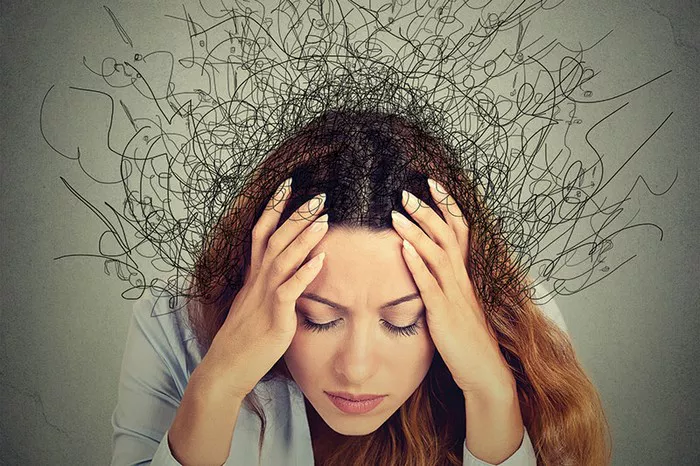Anxiety and depression are common mental health conditions that affect millions of people worldwide. While these disorders can be effectively managed with proper treatment and support, the consequences of leaving them untreated can be severe and far-reaching. In this article, we explore the potential ramifications of untreated anxiety and depression, shedding light on the impact they can have on various aspects of an individual’s life.
Understanding Anxiety and Depression
Anxiety Disorders:
Anxiety disorders are characterized by excessive worry, fear, or apprehension that is disproportionate to the actual threat. Common types of anxiety disorders include generalized anxiety disorder (GAD), panic disorder, social anxiety disorder, and specific phobias. Symptoms may manifest as physical sensations such as palpitations, sweating, trembling, and shortness of breath.
Depressive Disorders:
Depressive disorders, commonly referred to as depression, involve persistent feelings of sadness, hopelessness, and loss of interest or pleasure in activities. Major depressive disorder (MDD), persistent depressive disorder (dysthymia), and bipolar disorder are among the most prevalent forms of depression. Symptoms may include low mood, fatigue, changes in appetite or sleep patterns, and thoughts of self-harm or suicide.
The Consequences of Untreated Anxiety and Depression
Impact on Mental Health:
Untreated anxiety and depression can exacerbate symptoms over time, leading to worsening mental health outcomes. Chronic anxiety may contribute to the development of other anxiety disorders or depression, creating a cycle of distress and impairment. Similarly, untreated depression can increase the risk of suicide, substance abuse, and comorbid mental health conditions.
Physical Health Complications:
The mind-body connection is profound, and untreated mental health conditions can have significant implications for physical health. Chronic stress and anxiety can elevate levels of cortisol, the body’s primary stress hormone, leading to a range of physical health issues such as cardiovascular disease, gastrointestinal problems, weakened immune function, and chronic pain syndromes.
Impact on Relationships:
Anxiety and depression can strain interpersonal relationships, affecting communication, intimacy, and overall quality of life. Individuals with untreated anxiety may withdraw from social interactions, experience difficulty expressing their emotions, or exhibit irritability and agitation. Untreated depression may lead to feelings of isolation, self-imposed isolation, and conflicts with loved ones.
Work and Academic Performance:
Untreated anxiety and depression can impair cognitive function, concentration, and productivity, impacting performance at work or school. Individuals may struggle to meet deadlines, make decisions, or engage effectively in tasks, leading to absenteeism, decreased job satisfaction, and academic underachievement. Left unaddressed, these challenges can jeopardize career advancement and educational attainment.
Financial Strain:
The financial consequences of untreated anxiety and depression can be significant, stemming from reduced earning potential, medical expenses, and productivity losses. Individuals may incur costs associated with seeking treatment, medication, therapy, or hospitalization, placing a strain on personal finances and exacerbating financial stressors.
Risk of Substance Abuse:
Untreated anxiety and depression are risk factors for substance abuse and addiction, as individuals may turn to alcohol, drugs, or other substances as a means of self-medication or coping mechanism. Substance abuse can further exacerbate mental health symptoms, worsen overall well-being, and increase the likelihood of adverse outcomes such as overdose or injury.
Suicide Risk:
Perhaps the most serious consequence of untreated anxiety and depression is the heightened risk of suicide. Persistent feelings of hopelessness, despair, and worthlessness can lead individuals to contemplate or attempt suicide as a way to escape their emotional pain. It’s essential to recognize the warning signs of suicidal ideation and seek immediate help if you or someone you know is in crisis.
Seeking Help and Treatment
Therapy and Counseling:
Psychotherapy, such as cognitive-behavioral therapy (CBT) or interpersonal therapy, can be highly effective in treating anxiety and depression. Therapy provides a supportive environment for individuals to explore their thoughts, feelings, and behaviors, develop coping strategies, and cultivate resilience.
Medication Management:
Antidepressant medications, such as selective serotonin reuptake inhibitors (SSRIs) or serotonin-norepinephrine reuptake inhibitors (SNRIs), may be prescribed to alleviate symptoms of anxiety and depression. It’s essential to work closely with a healthcare provider to determine the most appropriate medication and dosage based on individual needs and preferences.
Lifestyle Modifications:
Incorporating healthy lifestyle habits can complement treatment for anxiety and depression. Regular exercise, adequate sleep, balanced nutrition, stress management techniques (e.g., mindfulness, relaxation exercises), and social support are all essential components of self-care that can promote mental and emotional well-being.
Support Networks:
Building a support network of friends, family members, peers, or support groups can provide invaluable encouragement, empathy, and understanding during challenging times. Connecting with others who have shared experiences can reduce feelings of isolation and foster a sense of belonging and community.
Conclusion
In conclusion, untreated anxiety and depression can have profound and far-reaching consequences, affecting mental health, physical well-being, relationships, work, finances, and overall quality of life. It’s essential to recognize the signs and symptoms of these conditions and seek help promptly to prevent further deterioration and mitigate the risk of adverse outcomes.
By prioritizing self-care, seeking professional treatment, and accessing appropriate support resources, individuals can take proactive steps towards managing their anxiety and depression effectively. Remember, you are not alone, and help is available. Together, we can break the silence surrounding mental health and promote healing, resilience, and hope.
[inline_related_posts title=”You Might Be Interested In” title_align=”left” style=”list” number=”6″ align=”none” ids=”7613,7610,7369″ by=”categories” orderby=”rand” order=”DESC” hide_thumb=”no” thumb_right=”no” views=”no” date=”yes” grid_columns=”2″ post_type=”” tax=””]































